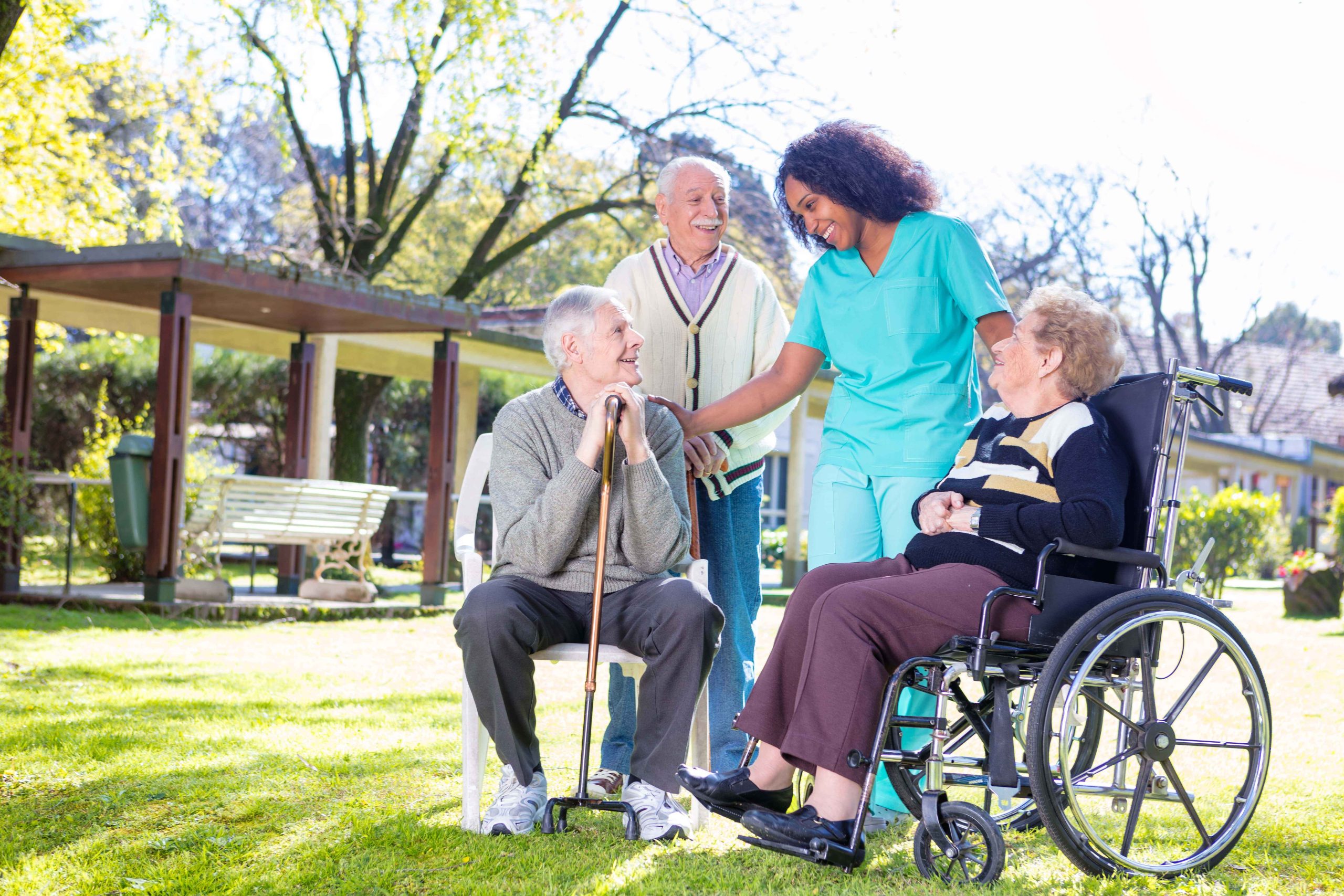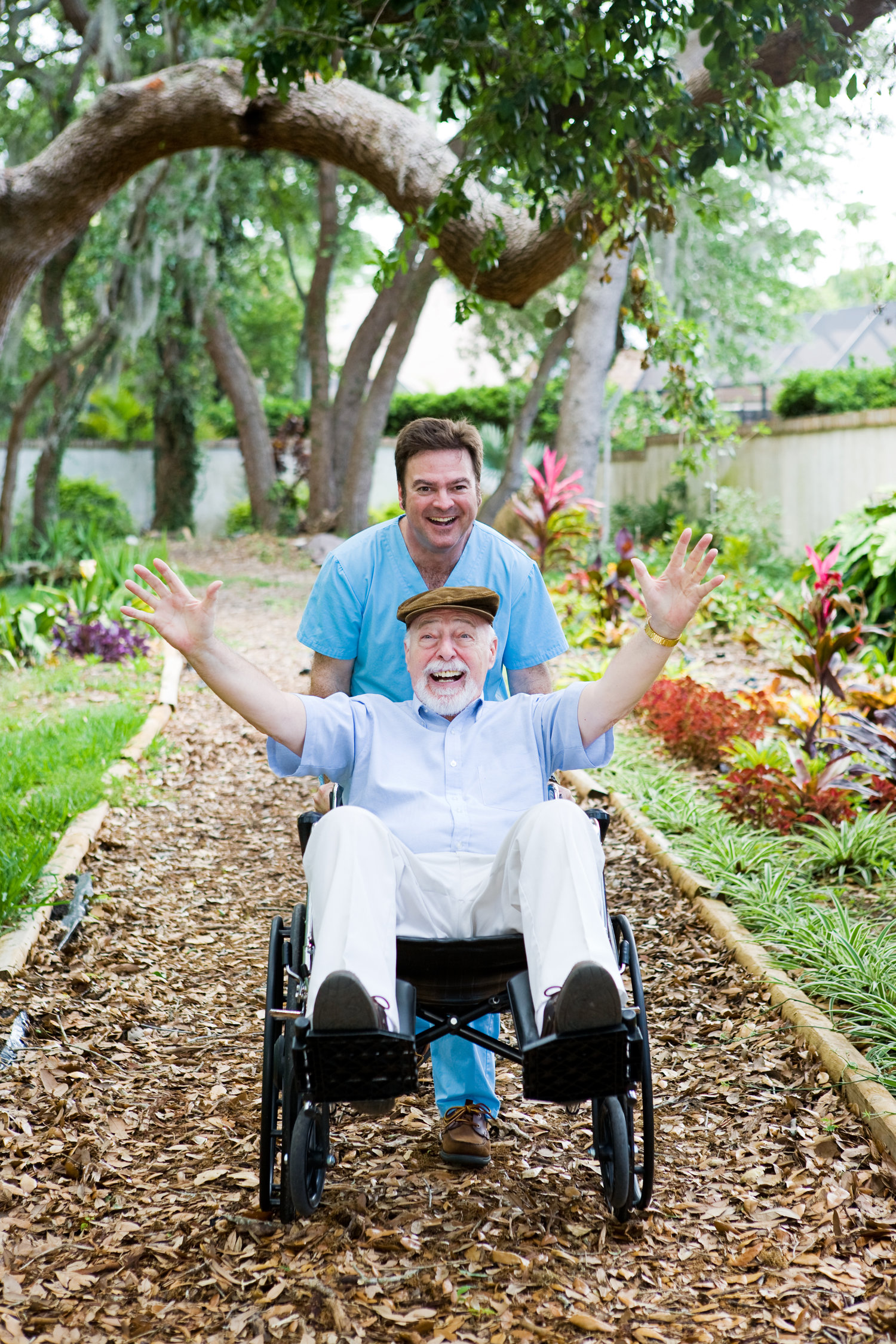
The Importance Of Caregiver Training in ABA Treatment
A caregiver is defined as a helper who provides direct care services to another individual. The term caregiver encompasses a wide range of individuals from an informal caregiver such as unpaid legal guardians, family members, and friends to a formal caregiver such as paid staff.
The primary goal of Applied Behavior Analysis (ABA) is to set up the environment in such a way that the client can be as functionally independent as possible. The ABA provider recognizes that the aging adult is likely to have caregivers for the breath of their life span. Since the ABA provider is continually working to systematically fade behavioral services through the demonstrated competencies of the caregivers and the mastery of behavioral treatment goals, emphasis is placed on how caregivers play a significant role in the delivery of interventions. It cannot be underscored enough that caregiver education and training are critical components of behavioral treatment.
The overall purpose of caregiver training is to give families and caregivers alike the tools and strategies they will need to carry out the principles of ABA across all of the environments that an aging adult encounters. The need for specialized training stems from the objective to effectively teach direct care workers how to implement, with fidelity, behavioral interventions and protocols that have been previously demonstrated as effective with the aging population. Applied Behavior Analysis has been empirically demonstrated to be effective in its approach to reducing challenging behavior, while simultaneously teaching and increasing target appropriate skills for aging adults.
In order to ensure that the training provided to direct care workers have meaning in the applied settings in which they perform, the ABA provider adopts a function-based approach. That is, recognizes the variables contributing to the contingencies under which direct care staff operate. The high frequency of challenging behaviors in the aging population is a contributing factor to the challenging work environments in which direct care staff operate and, therefore, an important consideration when designing training curriculum. The outcome of efforts to increase and maintain a client’s functional skills depends heavily on the quality of training for direct care staff. Caregiver training in ABA treatment utilizes the Behavior Skills Training (BST) model, an evidence-based ABA teaching practice, as the scaffolding for caregiver training that includes instruction, modeling, rehearsal, and feedback components.
Positive Outcomes of Caregiver Training
-
Improve caregiving skills
Caregiver training provides for the acquisition of the behavioral skill set needed to assist aging adults with activities of daily living, mobility, medication management, daily tasks, communication, and socialization. Caregivers learn to identify antecedent events or triggers for challenging behaviors and how to intervene in a way that prevents their onset.
-
Improve safety
Safety is a critical component of caregiving – both for the client and for the caregiver. Caregiver training ensures that caregivers remember safety rules and methods, are prepared for crisis intervention or emergencies, and are astute to what constitutes a safe living environment. Training provides caregivers with skills in knowing how to react well in different situations to help mitigate the occurrence of accidents, falls, and other possible dangers in the environment.
-
Effective communication
Effective communication is a critical skill needed in the caregiver role. Caregiver training helps to develop good communication skills such as active listening, empathy, as well as how to deliver clear, direct, and concise instructions to the client. Caregiver training teaches the importance of building relationships with clients. With open and empathetic communication, caregivers can earn trust, make care recipients feel heard and respected, and create a warm and supportive care setting. These environmental conditions are required for successful ABA treatment.
-
Person-centered care
Every client who receives care has unique preferences, ideals, and goals. Caregiver training emphasizes the importance of person-centered care. That is, care tailored to meet the unique needs of each client. Caregivers create a setting that supports a client’s well-being by recognizing and respecting their dignity, autonomy, and individuality. Additionally, training teaches caregivers how to provide care that is sensitive, personalized, confidential, and based on the specific client’s needs and interests.
-
Understanding how medical conditions effect behavior
Many people who need care have specific health problems and long-term illnesses. Caregiver training provides education regarding the specific client behaviors associated with those health conditions and teaches effective interventions for managing them.
Benefits of Caregiver Training
-
Increase caregiver competence
Training provides caregivers the knowledge and skills they need to perform competently in a variety of caregiving tasks. This knowledge not only improves the care provided, but also gives caregivers more confidence in their abilities and reduces stress. Caregivers who receive training are better equipped to handle the challenges that accompany their jobs.
-
Increase job satisfaction and retention
Research shows that well-trained caregivers are more likely to experience high levels of job satisfaction and remain in their positions longer. The benefits of a continuation of care cannot be ignored. With a solid understanding of their client’s needs, caregivers are able to execute interventions and teaching trials efficiently and effectively. Clients, in turn, experience a higher acquisition rate.
-
Improve health outcomes
When caregivers receive training, they are better equipped to help clients cope with their health problems and follow their treatment plans. This, in turn, yields improved health and functioning client outcomes.
Providing care for another human being is a demanding job that requires specialized skills and knowledge. Quality training produces positive outcomes for both the client and caregiver alike. Understanding the importance of caregiver training – both its positive outcomes and benefits – enables efforts toward improving the overall health and functioning of those who depend on caring and skilled caregivers.
Source
- CareTap 2023
- Gallagher, Claire, The Use of Behavior Skills Training and Behaviorally Based Interventions in Memory Care, 2019


